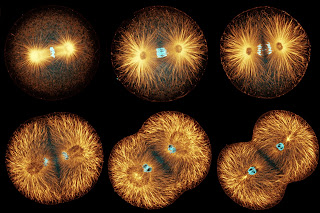1st August Trinity
And Jesus went on with his disciples into the region of Caesarea Philippi (in the north of the land at the source of the Jordan where the Roman Caesar was worshiped as a divine being). And on the way there he asked the disciples (and said to them), “Who do people say that I am?”
They said to him, “Some say that you are John the Baptist; others say, Elijah, still others that you are one of the prophets.”
Then he asked them, “And you, who do you say that I am?’ Then Peter answered, “You are the Christ.”
And Jesus warned them not to tell anyone about him.
And he began to teach them: “The Son of Man must suffer much and will be rejected by the leaders of the people, by the elders and the teachers of the law, and he will be killed and after three days he will rise again.” Freely and openly he told them this.
 |
| Tissot, Get thee behind Me |
And he called the crowd together, including his disciples and said to them, “Whoever would follow me must practice self-denial and take up his cross and follow me. For whoever is concerned about the salvation of his own soul will lose it; but whoever gives his life for my sake and the sake of the gospel, his soul will find power and healing. For what use is it to a human being to gain the whole world if through that he damages his soul, which falls victim to the power of an empty darkness? What then can a man give as ransom for his soul? In this present humanity, which denies the spirit and lives in error, whoever is ashamed of me and my words, of him the Son of Man will also be ashamed when he comes in the shining revelation of the Father among his holy angels.”
And he said to them, “The truth I say to you, among those who are standing here there are some who will not taste death before they behold the kingdom of God arising in human beings, revealing itself in the power and magnificence of the spirit.”
1st August Trinity
July 24, 2016
Mark 8, 27-Mark 9-1 (Peter’s Confession)
 |
| Tissot, The Blind Leading the Blind |
we want them to be. But these imaginings can cast a veil over what actually is and what will be. They can blind us to what is real.
The people of Jesus’s time had built up images of how the Messiah would be. He would be a great political leader, a new King David to overthrow the Romans. He would be a prophet, the voice of God. He would be a priestly mediator of the divine.
Peter indeed recognizes in Jesus the Christ, the anointed and expected Messiah. Immediately Jesus tries to tell his disciples what his real mission, his real plans are. He tries to clear away the false hopes and expectations. He will not be a political leader. Although he is the voice of God, he will not be an old style prophet only of the folk. He will be a priest, but of a new order. He will be both priest and sacrifice.
 |
| C. D' Herbois |
But Peter’s earthly hopes get in the way. His expectations become an adversarial force, an obstacle that Christ must reject. And it is Judas’s false expectation that hand Jesus over to the executioners. Christ’s task is so other, so radical, so unimaginable that even to this day hardly anyone fully understands it.
Yet even though we may not understand Him, Christ is still able to work on his mission, as long as we are open to him; as long as we don’t harbor false expectations of what he can do for us. He works in our hearts to heal; he works in our communities to unite; he works in the world to give peace.
www.thechristiancommunity.org
www.thechristiancommunity.org














